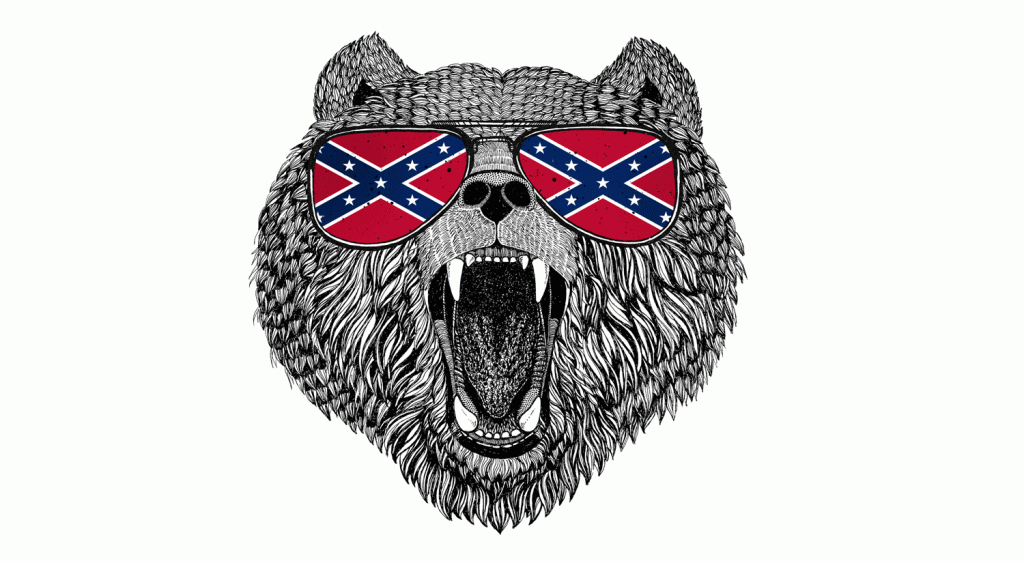The Unholy Alliance of Russia and the American Far-Right
America’s neo-Nazis don’t look to Germany for inspiration. They look to Russia | The Washington Post
Trump, the alt-right and the Kremlin: White supremacists’ Russia links are no secret | Salon
Pro-Russian bots take up the right-wing cause after Charlottesville | Pro Publica
There are unmistakable ties between American white-supremacist groups, including those active in Charlottesville, Virginia, and Russia. While the specific events in Charlottesville have not been linked directly to any foreign power, demonstrable ties exist between individuals and organizations and are consistent with a broad Russian effort to weaken the internal cohesion of the United States by encouraging secession, ethnic divisions, and white nationalism.
Russia has cultivated ties with organizations and individuals on the right in both Europe and the United States. In Europe, Russia’s efforts have taken the form direct support to far-right political parties, financial support for nativists such as Marine Le Pen in France, and even the planting of fabricated news stories. In the United States, we see ties between Russia and organizations like those advocating for secession in California and Texas, among other places.
In the United States, there is also a strange affinity for Russia espoused by some in the evangelical Christian community who see Russian President Vladimir Putin as a Christian leader preserving White European identity against an Islamic onslaught. These views of Putin are widely held among American white supremacists.
Of course this is not to say that Putin controls American white supremacists or that white supremacists are motivated by anything other than their own warped world-view. But history and recent evidence demonstrates that one feature of Soviet and, now, Russian active measures is to exploit and encourage divisions that already exist within Western societies—whether it was the American civil rights movement fifty years ago, the peace movement of the 1980s, or the controversy around the Black Lives Matter movement today.
The objectives of Soviet and now-Russian active measures against the West have been remarkably consistent: sow discord, emphasize divisions, discredit Western liberalism and the world-order which rests on it. These objectives are predicated on a zero-sum approach to international politics. If the West—and the United States in particular—is weaker, that’s seen in Moscow as good for Russia. If Western liberalism—free elections, pluralism, free speech, and free institutions—appear dysfunctional, that helps secure the illiberal regime in power in the Kremlin today. These divisions also limit American soft-power and distract the American people from Russia’s actions in places like Syria and Eastern Ukraine.
One of the easiest, most divisive issue for the Russians to exploit are the issues around race and identity that have so long bedeviled the United States. As Clint Watts explained to the Senate Select Committee on Intelligence earlier this year: “Russia targets specific audiences inside electorates amenable to their messages and resulting influence–in particular alt-right audiences incensed over immigration, refugees and economic hardship.”
But these ties are not just theorized. Richard Spencer, credited with coining the term “alt-right,” led an earlier tiki-lit protest at the same statue of Robert E. Lee in Charlottesville in May. Bathed in the sweet smell of citronella, these self-proclaimed protectors of confederate history broke into a peculiar chant: “Russia is our friend.”
Spencer’s ties to Russia, however, are provocative. Spencer’s now-estranged, Russian wife Nina Kouprianova has worked as English translator of the works of Alexander Dugin, a Russian political theorist who champions Russia as the new Rome—the defender of white, European identity. On August 4, 2017, Dugin was interviewed by Alex Jones on Info Wars and attacked National Security Advisor H.R. McMaster as a globalist—a member of the cabal weakening traditionally white civilization. Previously, in 2015, Dugin delivered a lecture via Skype to Texas A&M University titled, “American Liberalism Must be Destroyed.” That same year, Dugin spoke to the “Traditionalist Worker Party” led by Matthew Heimbach who has called for breaking-up the United States in order to create a white ethno-nationalist state. Both Heimbach and Spencer were scheduled to speak at the rally in Charlottesville.
In an analysis piece published by The Washington Post, Adam Taylor, without citing experts to which he alludes, dismisses Russian “influence in the U.S.” as “dramatically exaggerated” to make the case that American white supremacy is home-grown. In all fairness, he misses the point. No one who has studied, even casually, the long history of racial animus in the United States would see events in Charlottesville as anything other than part of the American experience.
But that’s precisely how Russian active measures work: they identify organic features of society that can be exploited to foment division and to weaken the United States. The only remaining question is whether we will see this for what it is: part of a broad attack on American institutions and political cohesion. – Executive Director Jim Ludes

